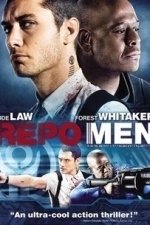Search
Search results
Andy K (10823 KP) created a video about Kill Bill: Volume 2 (2004) in Movies
Jun 9, 2019 (Updated Jun 9, 2019)
Goddess in the Stacks (553 KP) rated Black Heart Loa in Books
Sep 8, 2017
A rolicking fun ride through Louisiana
Black Heart Loa is actually the second in Phoenix’s Hoodoo series, the first being Black Dust Mambo. Even without reading the first one, Black Heart Loa is easy to follow, and the events of Black Dust Mambo are easily understood, without really having them rehashed to the reader. Part of that, I expect, is because Black Heart Loa is dealing with the fallout of the events of Black Dust Mambo, so things get explained in a natural progression in the book.
BHL was a rolicking fun ride through the swamps of Louisiana. I can’t speak for the accuracy of how the hoodoo belief system is represented, but most religious beliefs in urban fantasy get a vigorous twisting from the author, as miracles and magic become real in the fictional world. So I’m not terribly worried about the accuracy, as long as they’re not portrayed solely in a good or bad light. And in BHL there are both good and bad practitioners of hoodoo, illustrating the point that it’s not the religion that is inherently good or bad, but the person practicing it. So that moral quandary aside, I really, REALLY enjoyed this book. Kallie is a fun, ass-kicking, smart-talking protagonist, though I found myself wanting to know more about her best friend, a mambo-in-training.
I especially want to know more about a character who was introduced late in the book, but the ending of the book implies more books to come, and more focus on the character I’m intrigued by, so I’ll have to see if I can dig up more of this series. Amazon says this book is 2 of 2 in the series, but it was published in 2011 and I don't see any more in the series, which is sad. Goodreads mentions a third book, Black Moon Mojo, but I can't find any news about a release date.
You can find all my reviews at http://goddessinthestacks.wordpress.com
BHL was a rolicking fun ride through the swamps of Louisiana. I can’t speak for the accuracy of how the hoodoo belief system is represented, but most religious beliefs in urban fantasy get a vigorous twisting from the author, as miracles and magic become real in the fictional world. So I’m not terribly worried about the accuracy, as long as they’re not portrayed solely in a good or bad light. And in BHL there are both good and bad practitioners of hoodoo, illustrating the point that it’s not the religion that is inherently good or bad, but the person practicing it. So that moral quandary aside, I really, REALLY enjoyed this book. Kallie is a fun, ass-kicking, smart-talking protagonist, though I found myself wanting to know more about her best friend, a mambo-in-training.
I especially want to know more about a character who was introduced late in the book, but the ending of the book implies more books to come, and more focus on the character I’m intrigued by, so I’ll have to see if I can dig up more of this series. Amazon says this book is 2 of 2 in the series, but it was published in 2011 and I don't see any more in the series, which is sad. Goodreads mentions a third book, Black Moon Mojo, but I can't find any news about a release date.
You can find all my reviews at http://goddessinthestacks.wordpress.com
Gareth von Kallenbach (980 KP) rated Repo Men (2010) in Movies
Aug 8, 2019
What does it mean to be both alive and dead?
Based on the novel “The Repossession Mambo” by Eric Garcia, Repo Men is a dark sci-fi action film from director Miguel Sapochnik. It is an oddly sadistic film that begins as a fantastic black comedy/drama, loses its way in the second act with well-shot but mindless action and predictable plot elements, yet still finds its way back before the credits roll.
Remy and Jake, played by Jude Law and Forest Whitaker, are both Repo Men for The Union, an alarming combination of loan shark and artificial organ manufacturer. Those unfortunate patients that fall too far behind on their payments have their artificial parts removed and reclaimed, often accompanied by grisly special effects. Through an accident at a routine repossession, Remy ends up needing a new heart. In the process of trying to pay for it, he realizes that he can no longer find the moral ambivalence necessary to take the life of a stranger in order to earn the money to save his own. This film is definitely not for the squeamish, and many scenes were not unlike watching a surgery in progress.
This film will certainly attract more than a nod from those clamoring for universal healthcare in the United States, as well as those railing against corporate greed at the expense of human life. The Union is everything we love to hate in a corporation. Nothing, from duping emotionally compromised patients, to putting profits above all else, to even killing people, is out of bounds for this corporation. It’s uncommon to see corporate evil of this magnitude in a film, and with Liev Schreiber manning the helm, this evil is personified and delivered with such panache that he becomes an enjoyable caricature to watch.
This movie would be nothing without Remy’s path from classic amoral psychopath to redeemed soul, but the journey at times becomes muddy and obscure. Law plays the part somewhat stiffly, but still manages to shine in his interactions with Whitaker and Schreiber. Whitaker, however, is fantastic as Remy’s uncompromisingly unsympathetic partner Jake, who holds on tightly to what he knows and believes, however unprincipled. By the film’s end, Whitaker’s performance as the frustrated partner becomes even more impressive when compared to Law’s movement from perpetrator to victim to agent of retribution.
For years, Remy had no moral compunction against repossessing organs, nearly always from those who will die without them. But when his heart is removed, he suddenly empathizes with the victims of his profession. An odd paradox: that becoming less human can impart more humanity. Remy is both more genuinely alive after receiving his artificial heart, and more certain he will be dead when he can no longer pay. This is the crux of the film, and on this basis a clever story is told about the intersection of making a living, being alive, and the entanglements they create.
Based on the novel “The Repossession Mambo” by Eric Garcia, Repo Men is a dark sci-fi action film from director Miguel Sapochnik. It is an oddly sadistic film that begins as a fantastic black comedy/drama, loses its way in the second act with well-shot but mindless action and predictable plot elements, yet still finds its way back before the credits roll.
Remy and Jake, played by Jude Law and Forest Whitaker, are both Repo Men for The Union, an alarming combination of loan shark and artificial organ manufacturer. Those unfortunate patients that fall too far behind on their payments have their artificial parts removed and reclaimed, often accompanied by grisly special effects. Through an accident at a routine repossession, Remy ends up needing a new heart. In the process of trying to pay for it, he realizes that he can no longer find the moral ambivalence necessary to take the life of a stranger in order to earn the money to save his own. This film is definitely not for the squeamish, and many scenes were not unlike watching a surgery in progress.
This film will certainly attract more than a nod from those clamoring for universal healthcare in the United States, as well as those railing against corporate greed at the expense of human life. The Union is everything we love to hate in a corporation. Nothing, from duping emotionally compromised patients, to putting profits above all else, to even killing people, is out of bounds for this corporation. It’s uncommon to see corporate evil of this magnitude in a film, and with Liev Schreiber manning the helm, this evil is personified and delivered with such panache that he becomes an enjoyable caricature to watch.
This movie would be nothing without Remy’s path from classic amoral psychopath to redeemed soul, but the journey at times becomes muddy and obscure. Law plays the part somewhat stiffly, but still manages to shine in his interactions with Whitaker and Schreiber. Whitaker, however, is fantastic as Remy’s uncompromisingly unsympathetic partner Jake, who holds on tightly to what he knows and believes, however unprincipled. By the film’s end, Whitaker’s performance as the frustrated partner becomes even more impressive when compared to Law’s movement from perpetrator to victim to agent of retribution.
For years, Remy had no moral compunction against repossessing organs, nearly always from those who will die without them. But when his heart is removed, he suddenly empathizes with the victims of his profession. An odd paradox: that becoming less human can impart more humanity. Remy is both more genuinely alive after receiving his artificial heart, and more certain he will be dead when he can no longer pay. This is the crux of the film, and on this basis a clever story is told about the intersection of making a living, being alive, and the entanglements they create.

